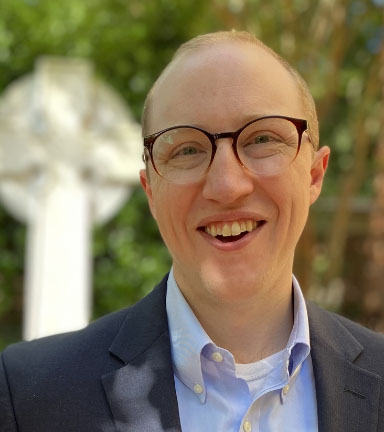A few weeks ago, I received a phone call from a friend seeking a reference for a place for him and his family to worship. His family is living in a suburb about half an hour from the capital city in his state. Both parents are Christian believers, and they’ve worshiped primarily online for the past few years.
But now they’re church shopping. As their resident clergy friend, I’m their religious Realtor.
“What are you looking for in a church?”
This question was more loaded than expected.

Benjamin Brown
My friend grew up in a moderate, slightly left-of-center Baptist context, but no such local churches exist in his area. They’ve visited a few churches, but nothing has felt quite right.
He and his family recently visited a local church plant meeting in a former warehouse, and they were encouraged by the number of young parents and children in the church. However, the theology was far too conservative for his family’s liking.
There are several mainline churches in the area, but there are fewer opportunities for typically imagined peer-community with fewer young parents and fewer children in these congregations.
There are a few churches just outside of comfortable driving distance that check all the boxes. However, these destination churches for now are just that, a destination. My friend is seeking a church that worships in a traditional or contemporary or blended manner, is left-of-center theologically, and offers ministry programming for children and families to assist in forming his daughter’s faith.
Through our conversation, we realized a compromise would need to be made.
“What are you willing to compromise: proximity, community or theology?”
His response was that theology was likely the easiest thing to compromise.
The truth is that many people are not looking for a new church in 2023. Gallup recently noted church membership for adults in the United States now reflects less than 50% of the population.
For those who are looking, the motivation for church attendance and membership may be generational.
Boomers want to maintain institutional integrity and traditional expressions of church.
Gen X seeks a church that allows room for context to explore life’s greatest questions and not simply be handed someone else’s answers.
Millennials crave a church that is authentic, transparent and creates space for building community.
Gen Z wants a non-hypocritical church standing for justice and inclusion.
“Chances are, your local church cannot be all things to all people.”
Chances are, your local church cannot be all things to all people. Churches compromise on principles just like people.
Ultimately, it’s unhealthy for churches to view every effort in the level of potential attraction for people of various generations, but it’s also unhealthy for this to go unexamined. Churches are wise to look around and see who’s missing. What generation(s) dominate the teams and committees? What groups are missing, or are uninvited in the decision-making rooms?
In this new year, people will be looking for a new church. This church they’re seeking is local and universal, and many visitors are wise not to select the church that’s picture-perfect from the start. A perfect church does not exist, and the search for the “white whale” of a church is never-ending. Instead, many guests are seeking a warm invitation and a church that possesses the potential to become the church they’re really seeking.
The new church in 2023 straddles the line of maintaining load-bearing columns but being nimble enough to adapt to changing times and circumstances.
This year, view your church through the lens of a newcomer. What insider language is present in publications? If someone wanted to visit your church, what hurdles and thresholds stand in their way? When folks come to visit, what are they really looking for, and what does the church in 2023 need to provide for them?
Many of these answers are contextual and personal, and they’re not likely to quickly reverse cultural trends and attitudes on church. But considering the needs of others and serving the local community should rank high on the priority list of churches seeking to survive.
Benjamin Brown serves as minister of students at Second Baptist Church in Richmond, Va. He is a graduate of Baptist Theological Seminary of Richmond.


